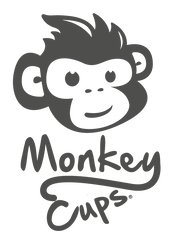Monkey Cups barista standard reusable cups
Our mission is to help turn the tide on single-use disposable cups by developing a range of colourful and stylish reusable alternatives.
THE 100th MONKEY PHENOMENON
In 1952 on the Island of Koshima, Japan, scientists began feeding the native Macaque Monkeys - also known as Snow Monkeys - sweet potatoes on the beaches as part of a new study. During 1952 and 1953 the monkeys developed several innovative new habits, one of which was invented by an 18 month old female named Imo.
Imo discovered that sand and grit could be removed from the sweet potatoes by washing them in the ocean. Imo’s mother and playmates learned the new habit from her and soon it spread to other members of the family group. Unlike most food habits which are passed down from parents to their young.
According to Watson, the potato-washing habit spread gradually up until 1958. Then in the autumn of that year, a remarkable change occurred on Koshima which formed the basis of the Hundredth Monkey Phenomenon.
Reports suggest that once a critical number of monkeys had learned the potato washing habit - say 100, all monkeys on the Island began to copy it. Suddenly monkeys on other islands started washing their sweet potatoes too.
By choosing to reuse, you might be the ‘100th Monkey’ the one that turns the tide on single-use plastic and inspires the change from disposable to reusable.
Together we can turn the tide on single-use plastic disposables, protecting our children's future and the future of our planet.
